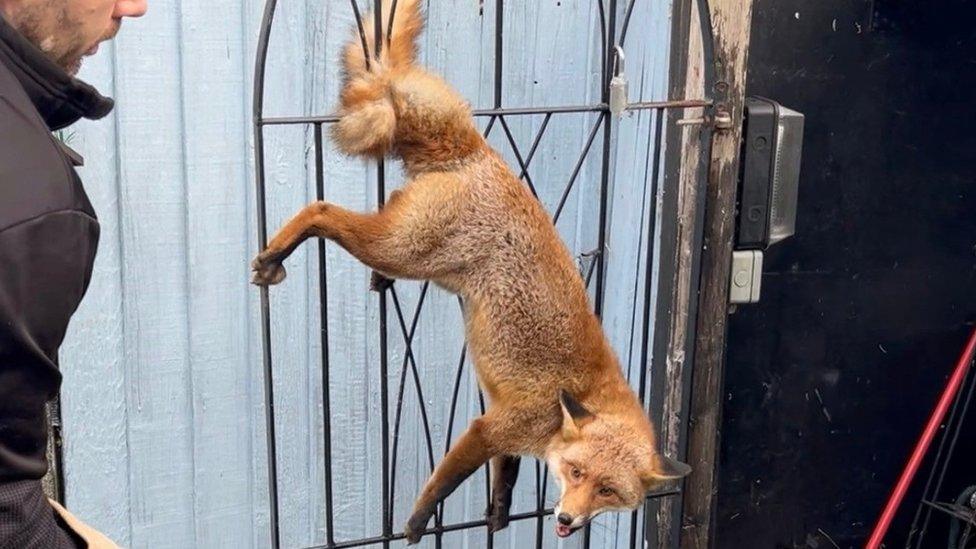East Sussex: Seabirds covered in oil found on county beaches
- Published
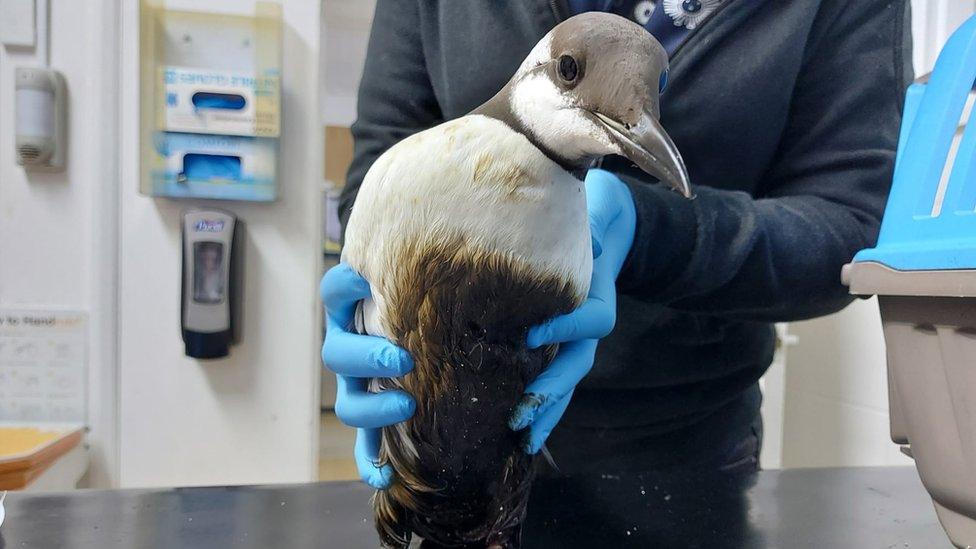
WRAS urged members of the public not to try to treat oiled birds at home
A wildlife charity is appealing to the public to look out for seabirds covered in oil on beaches after treating several in recent days.
East Sussex Wildlife Rescue & Ambulance Service (WRAS) said the guillemots usually only come to shore to nest.
"The cleaning process is not as simple [as] washing them down and they have to be treated for any ingested oil," said founder Trevor Weeks.
WRAS has also warned members of the public not to take oiled seabirds home.
Mr Weeks said the charity was "not convinced" the birds had been covered in the same type of oil, with some covered in "black sticky" crude-like oil, and others in "dirty engine or cooking oil".
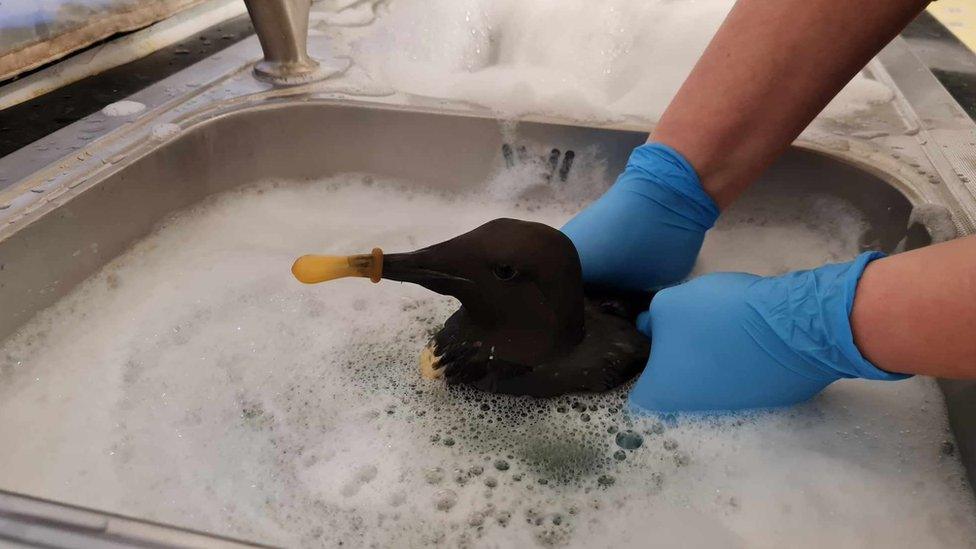
The seabirds also have to be treated for any ingested oil
Oil-soaked feathers are dangerous for birds as they use feathers to regulate their temperature.
Birds can freeze to death, even in lukewarm waters, if they are covered with oil.
WRAS said its care team had been treating and cleaning the birds.
"If anyone finds one please do not just take it home and assume you can clean and treat it yourself.
"They are likely to need veterinary medication, so please contact ourselves or the RSPCA," Mr Weeks said in a Facebook post., external
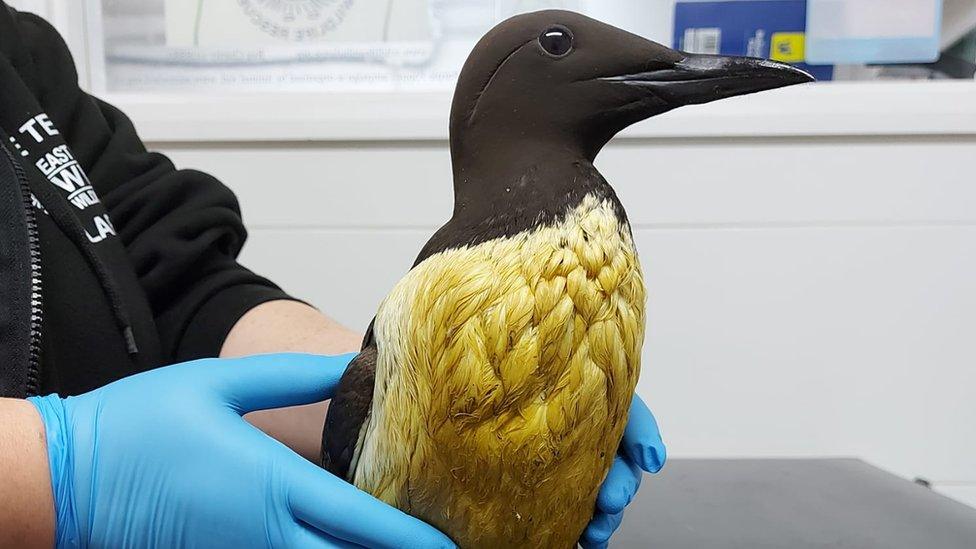
The charity's founder said fewer oil spillages take place now than in the 1980s
He said oil spillages had lessened since he started rescuing wildlife in the mid-1980s, but still occurred.
"Containers on small vessels wash overboard in rough weather by accident [and] there are also sunken [World War Two] vessels which occasionally leak oil.
"But we don't know where this oil has come from," he said.

Follow BBC South East on Facebook, external, on X, external, and on Instagram, external. Send your story ideas to southeasttoday@bbc.co.uk or WhatsApp us on 08081 002250.
- Published26 February 2024
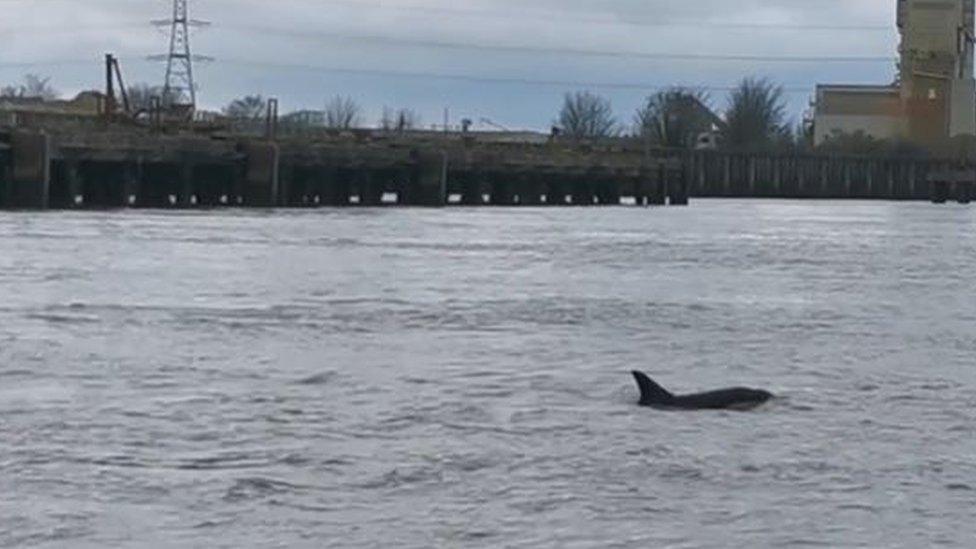
- Published23 February 2024
